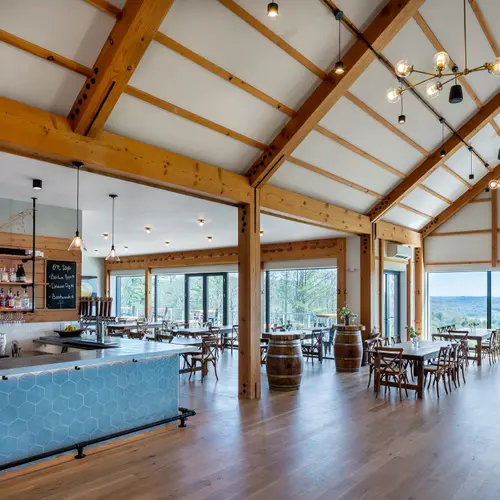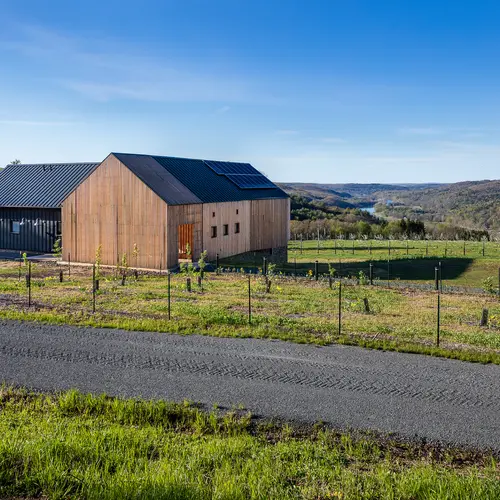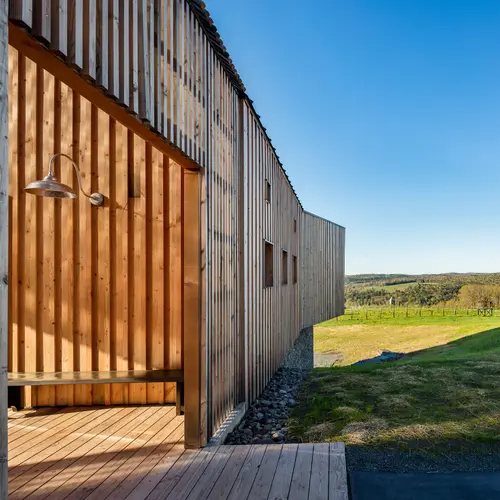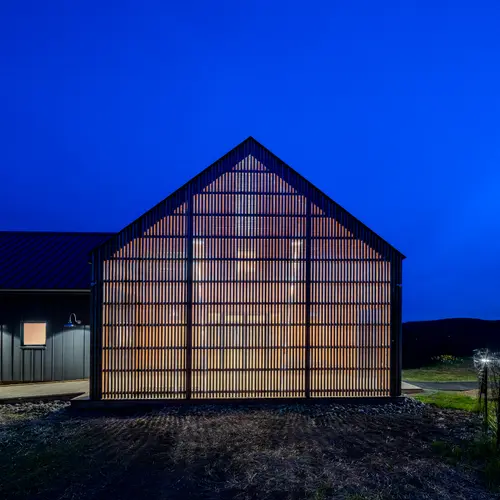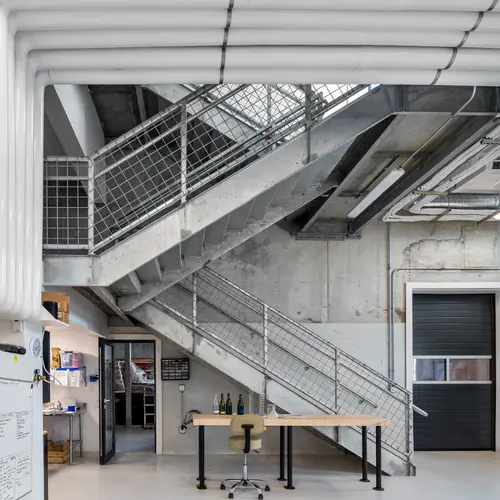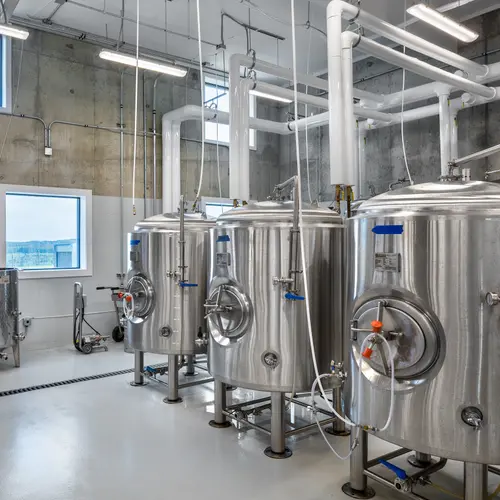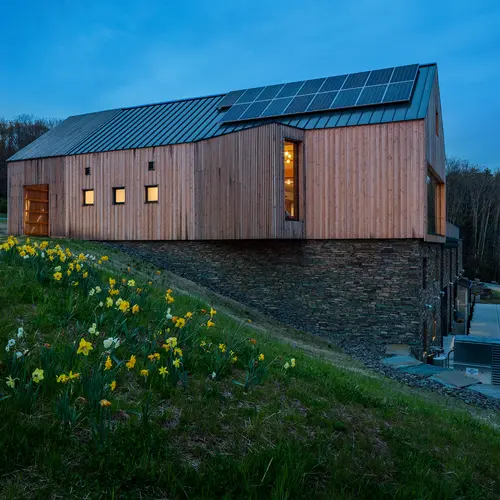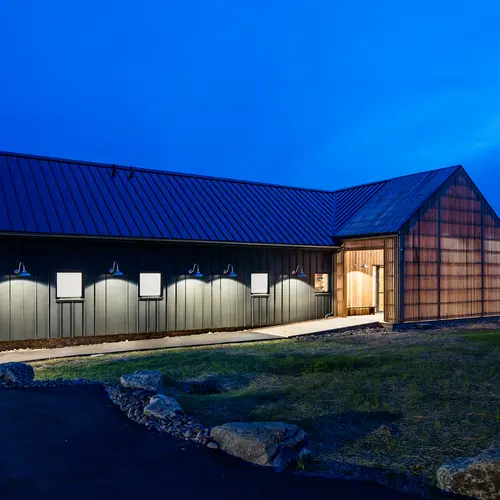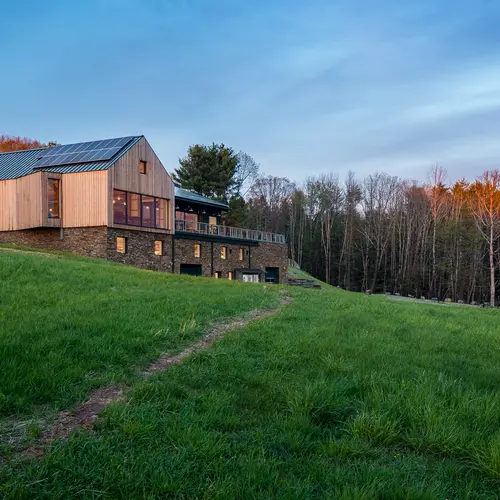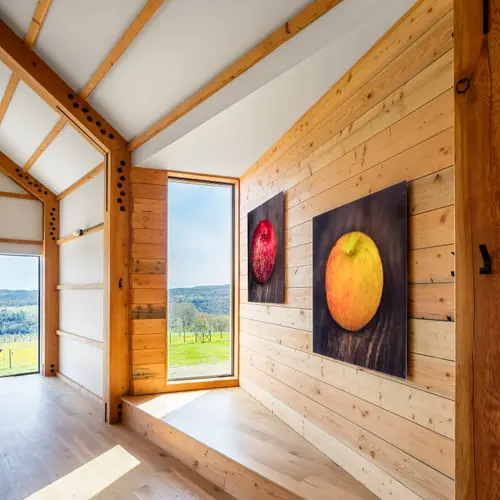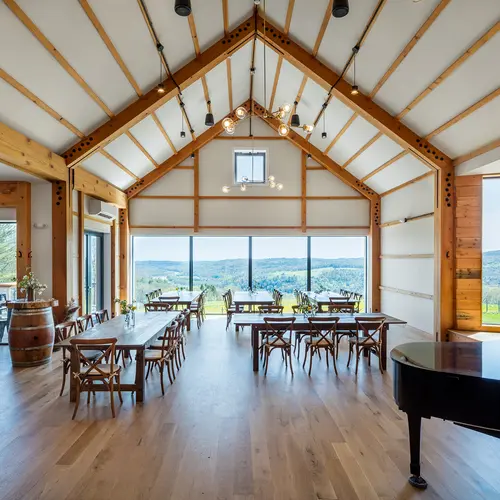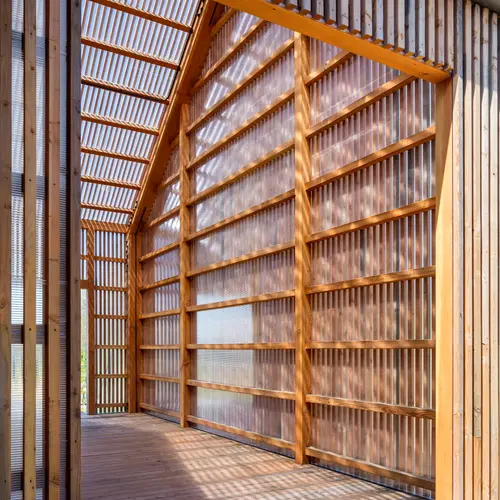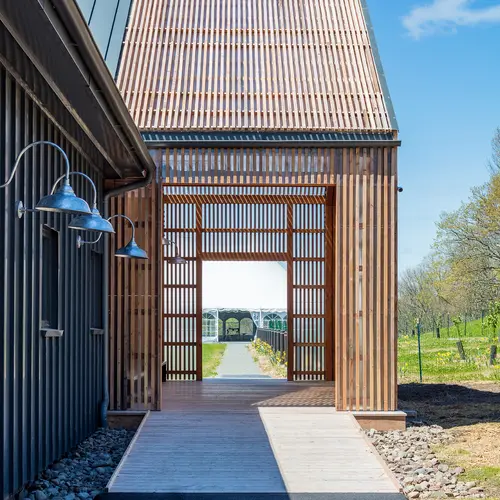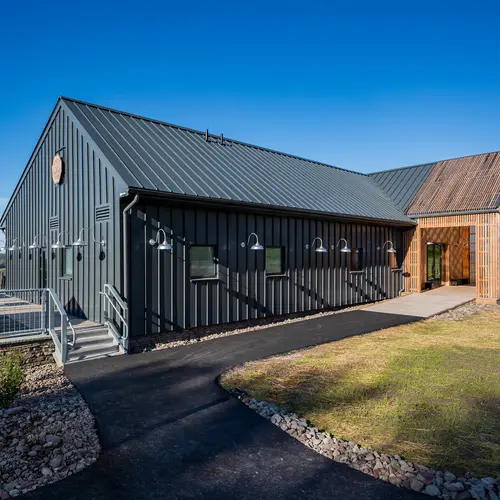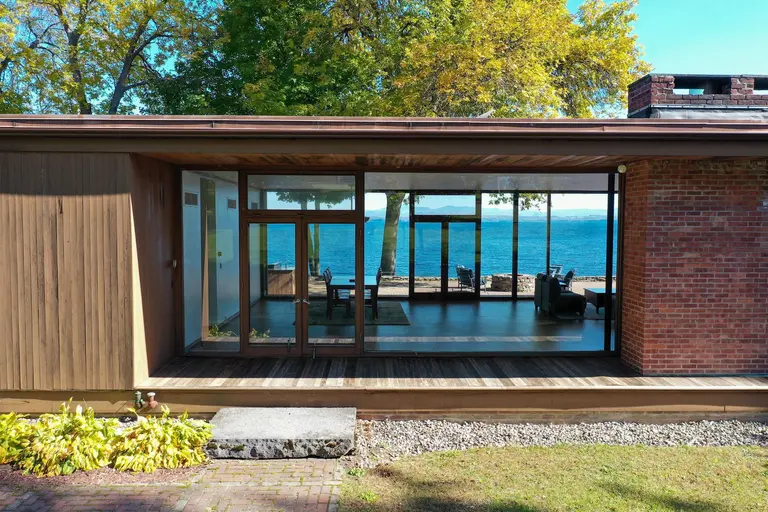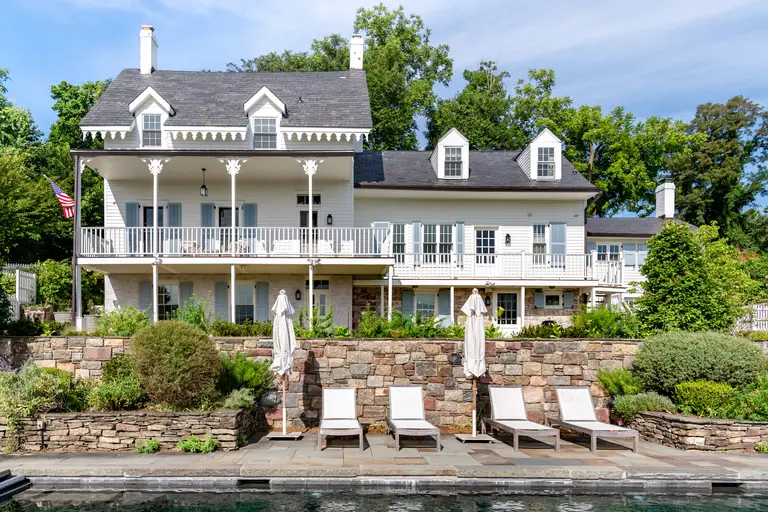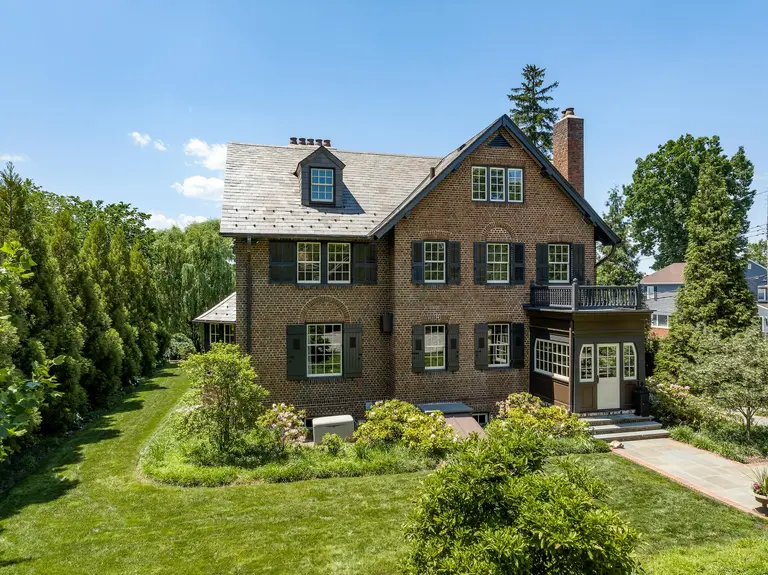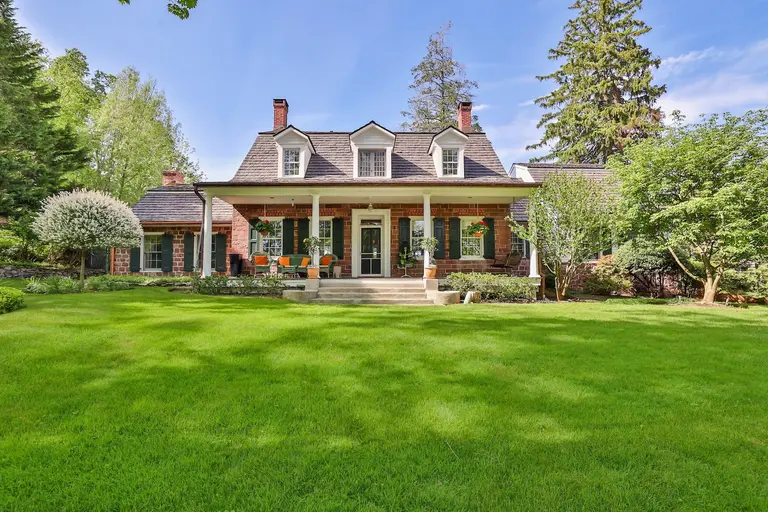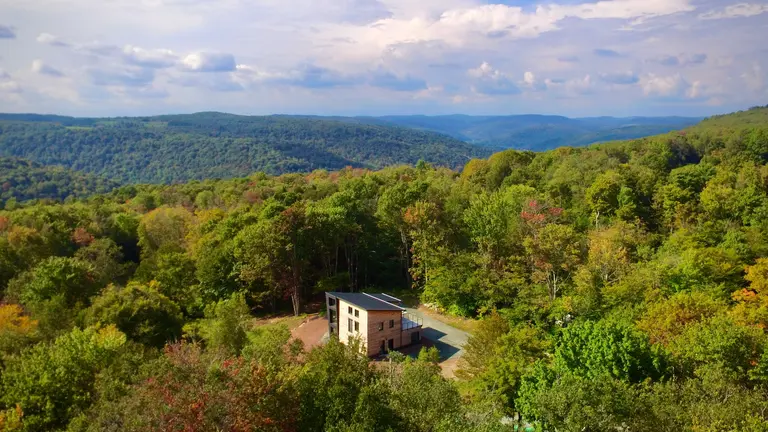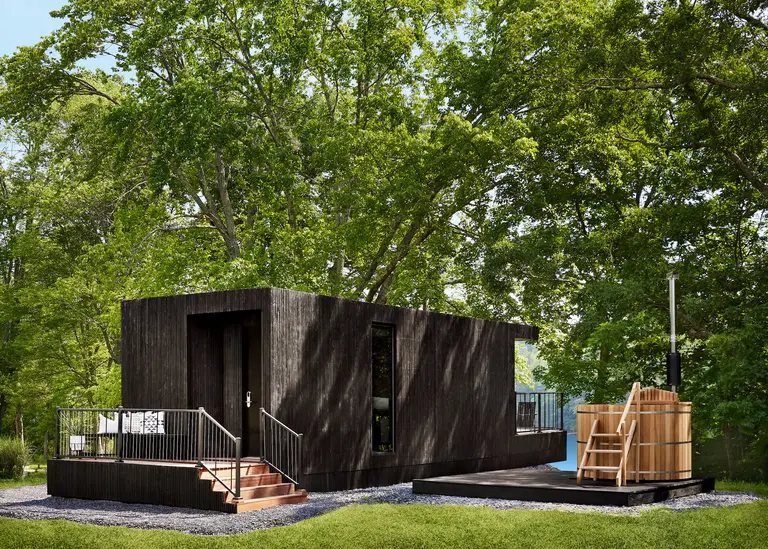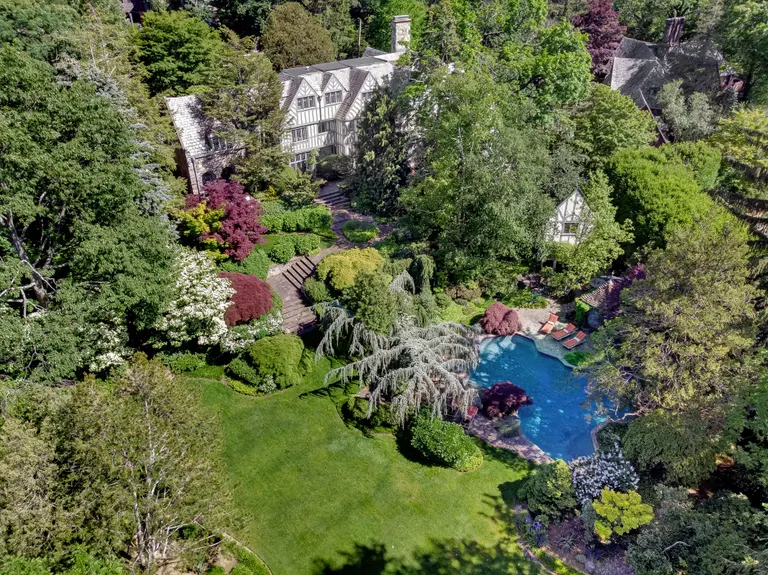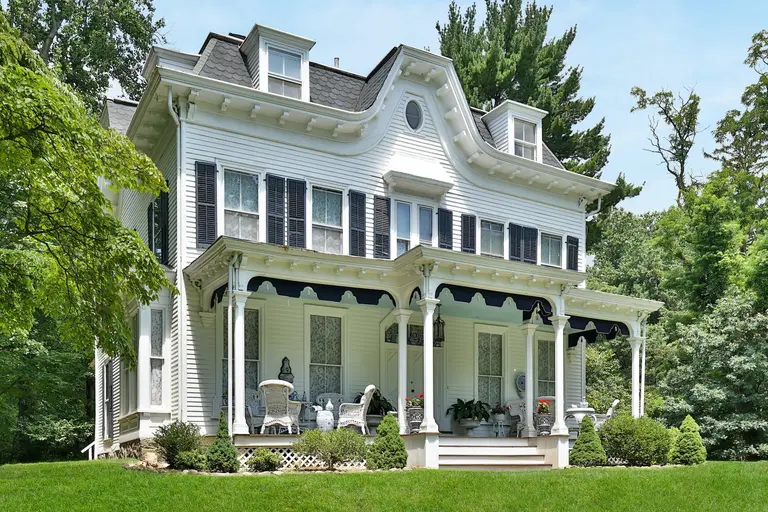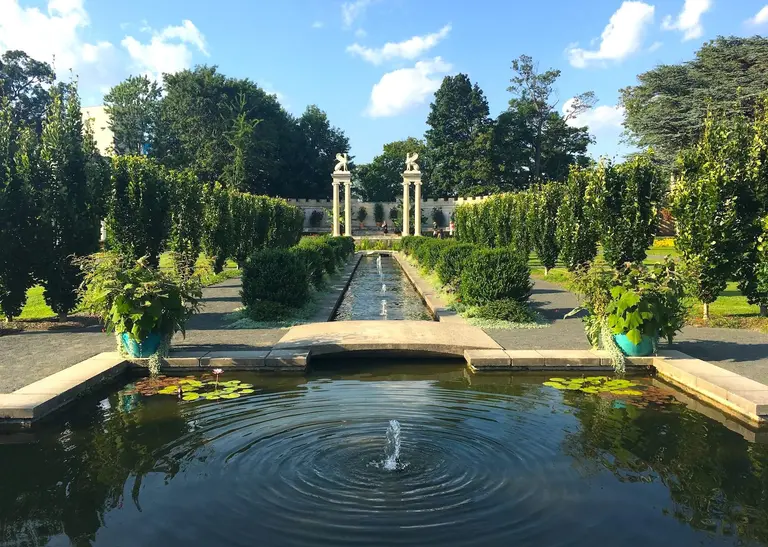The world’s first Passive House-certified cidery opens in the Catskills
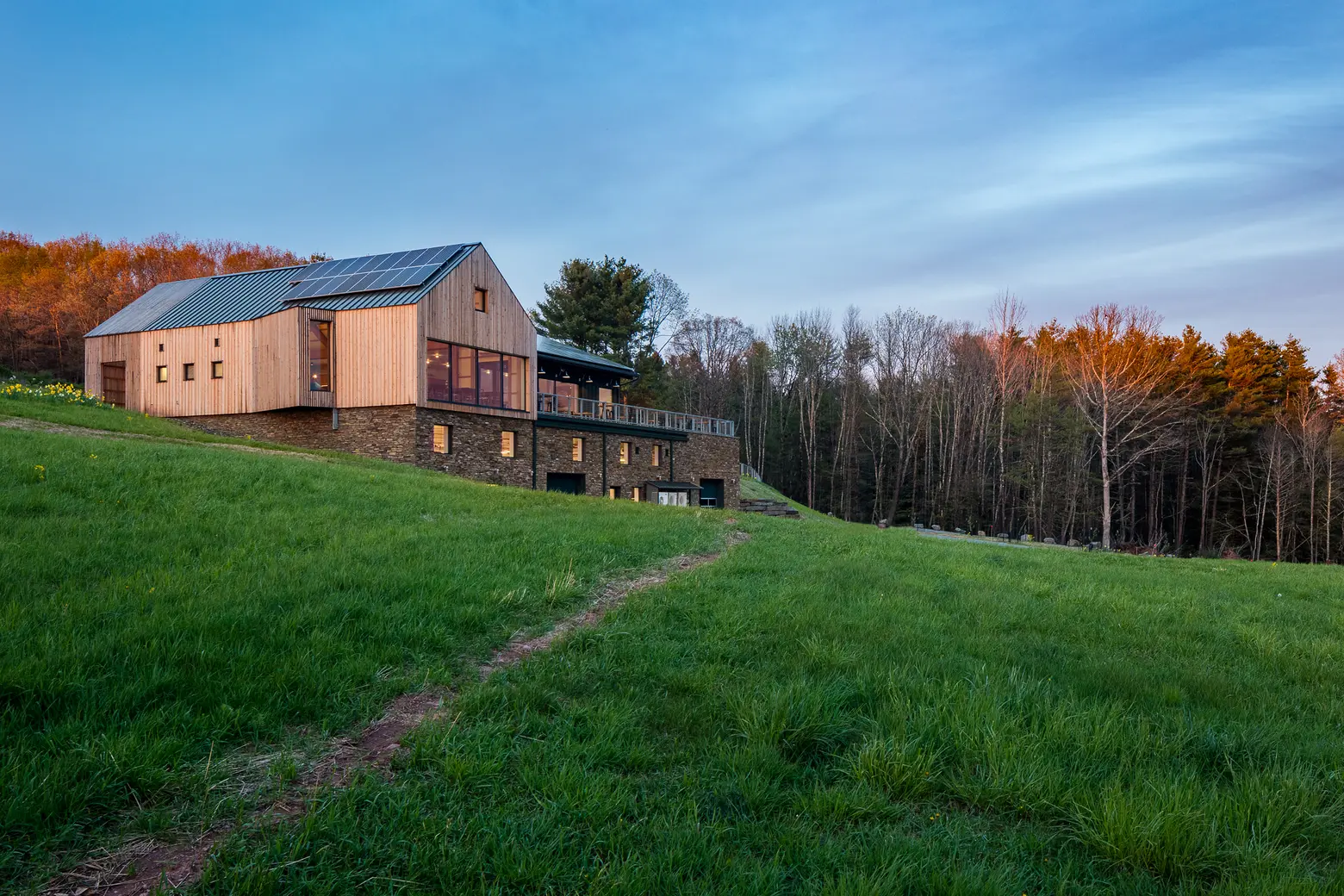
All photos courtesy of Brad Dickson / River Architects, PLLC
Located in the foothills of the Catskill Mountains overlooking the Delaware River Valley, the world’s first Passive House-certified cidery is now open. The Callicoon-based Seminary Hill Orchard & Cidery was designed as a low energy-use structure, with an air-tight thermal envelope, triple pane windows, and photovoltaic solar panels. Designed by River Architects, the structure is not only sustainable but architecturally appealing, flaunting gapped wood siding, interiors clad with reclaimed wood from the pilings of the original Tappan Zee Bridge, and lovely views of the apple orchard.
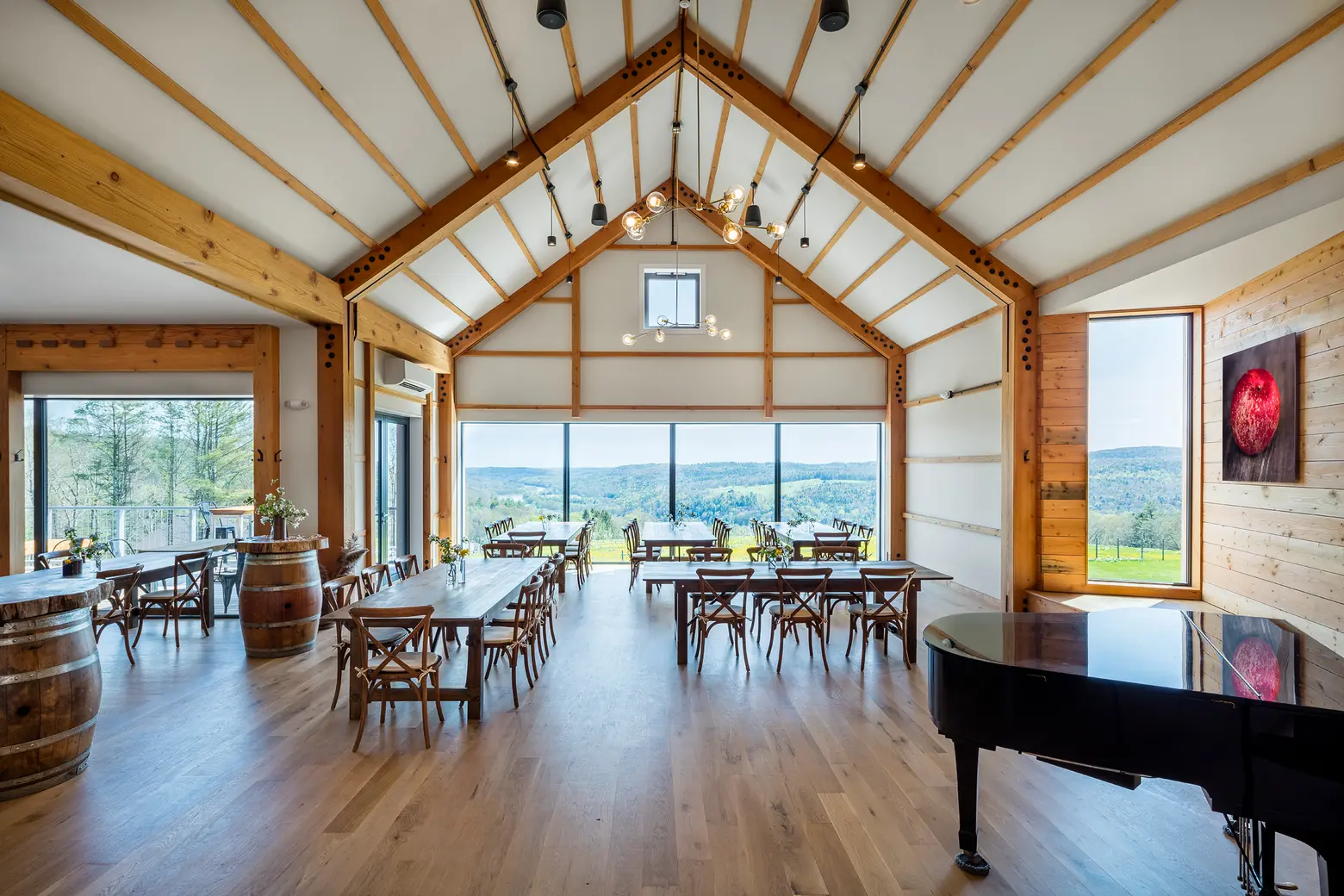
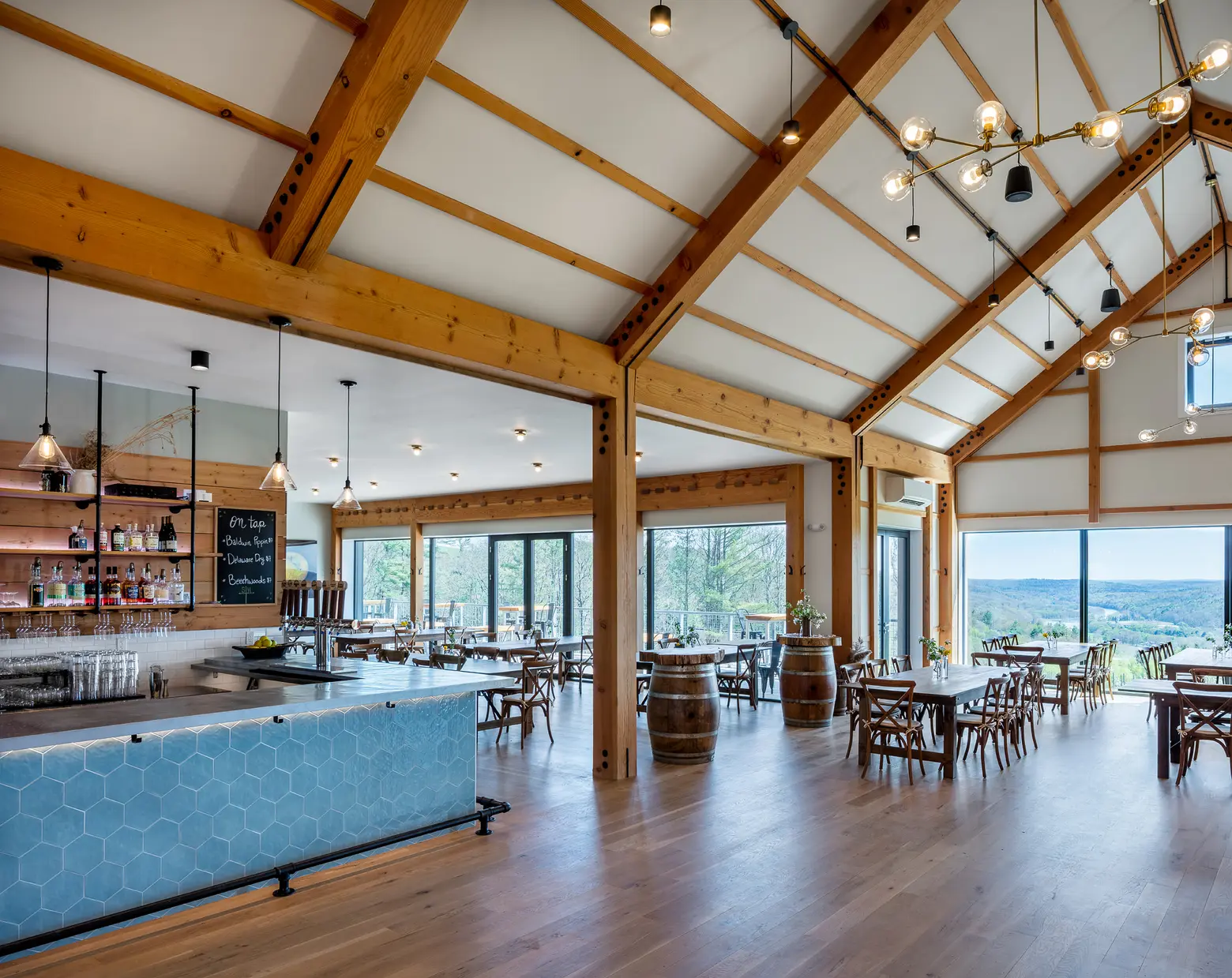
Measuring 9,300 square feet, the Seminary Orchard & Cidery houses an organic hard cider production facility, tasting room, commercial kitchen, and event space. The design from River Architects is a nod to barns found throughout the Hudson Valley, a “modern take on a classic ‘bank barn’ built into the side of a hill,” as a press release describes. Hudson Valley-based Baxter constructed the cidery.
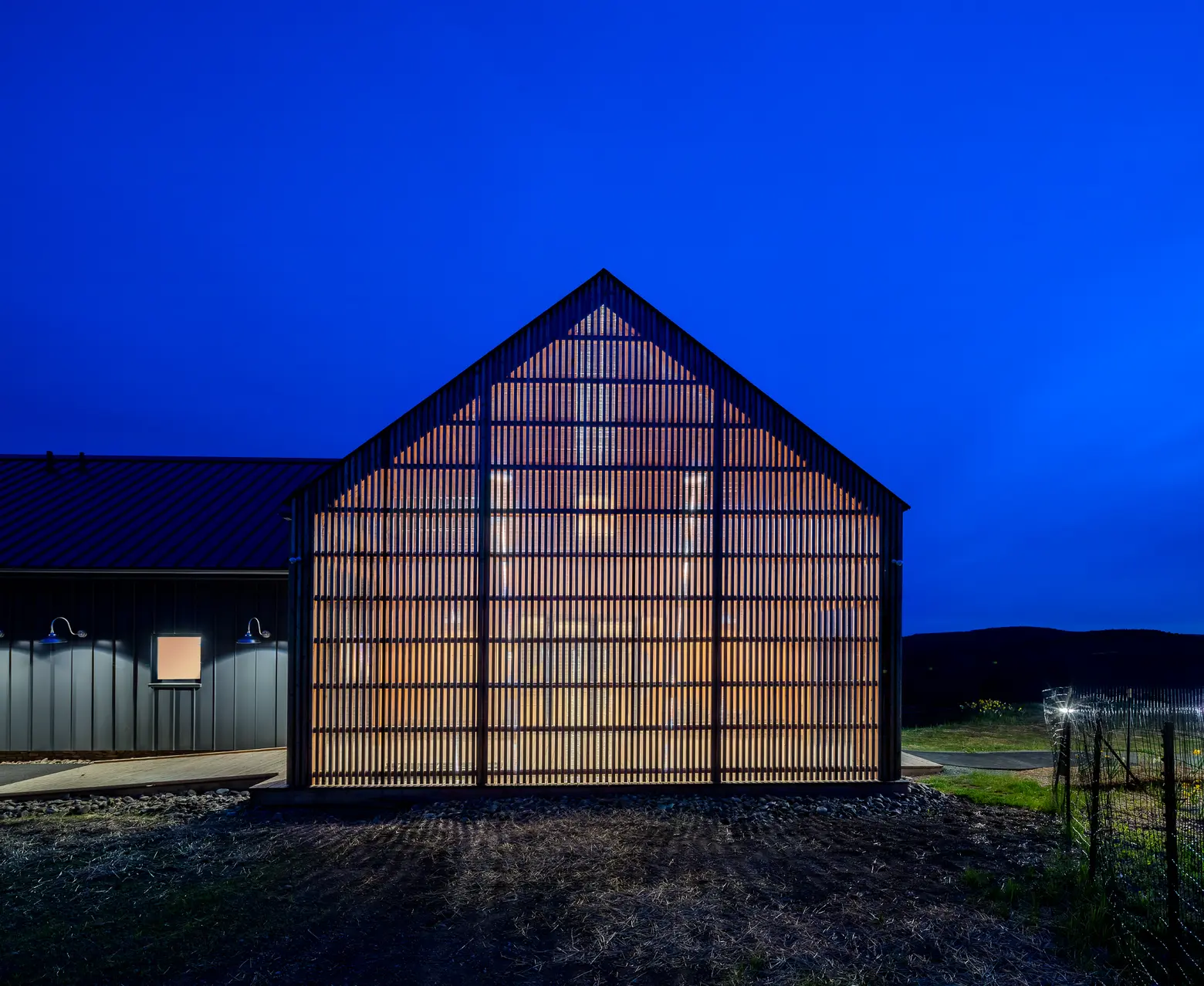
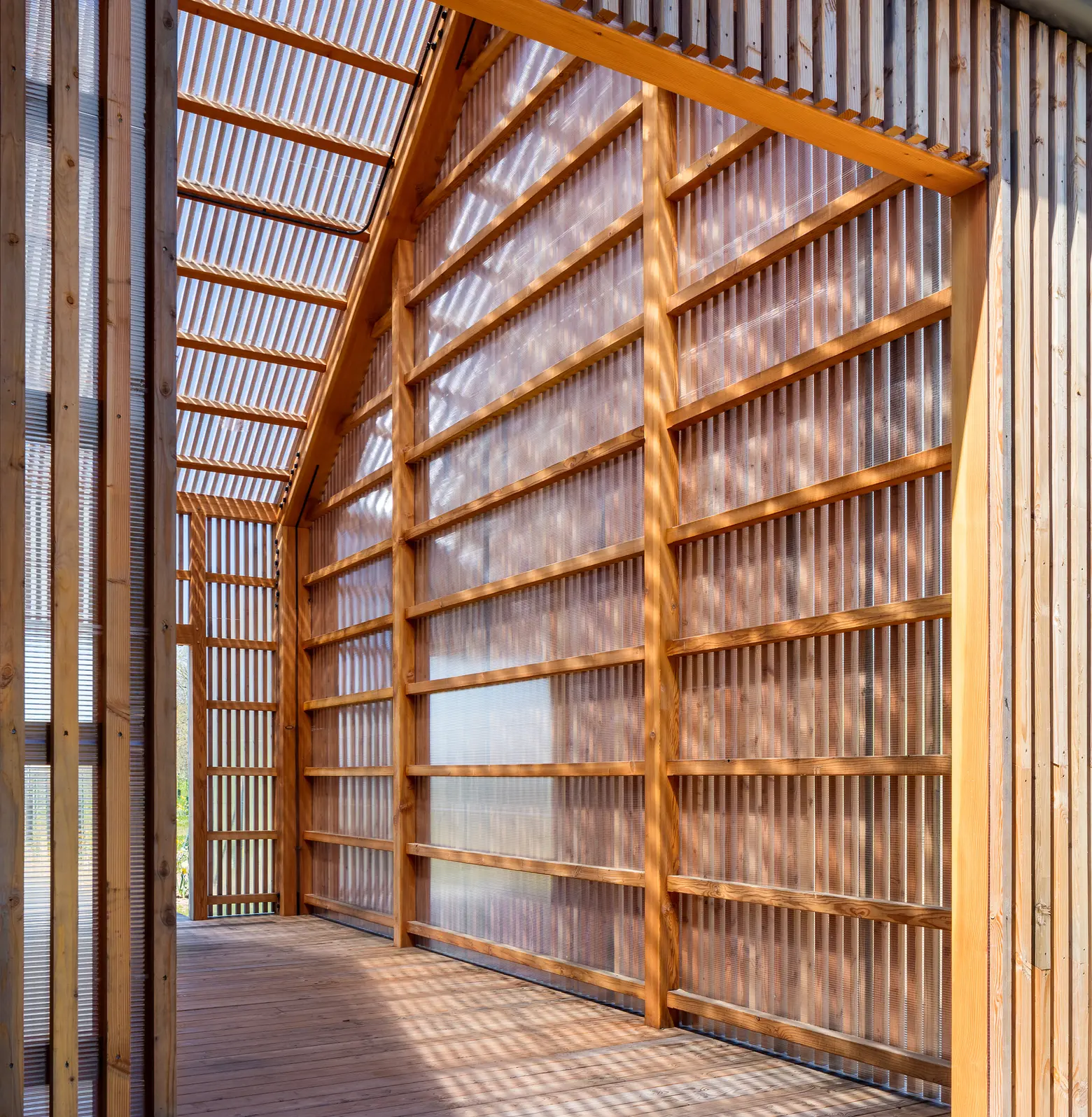
The main entryway’s gapped wood siding filters light from the outside in, with the tasting room and event space clad with larch wood reclaimed from the underwater pilings of the original Tappan Zee Bridge. A wraparound patio and balcony overlook the scenic Delaware River Valley and the surrounding countryside.
“My childhood was spent exploring Hudson Valley’s barns – many that don’t exist today,” James Hartford, principal and creative/technical partner, River Architects, PLLC, said. “This experience inspired the wood-slatted entryway and its enticing play of shadows during the day, which transforms into a lantern at night.”
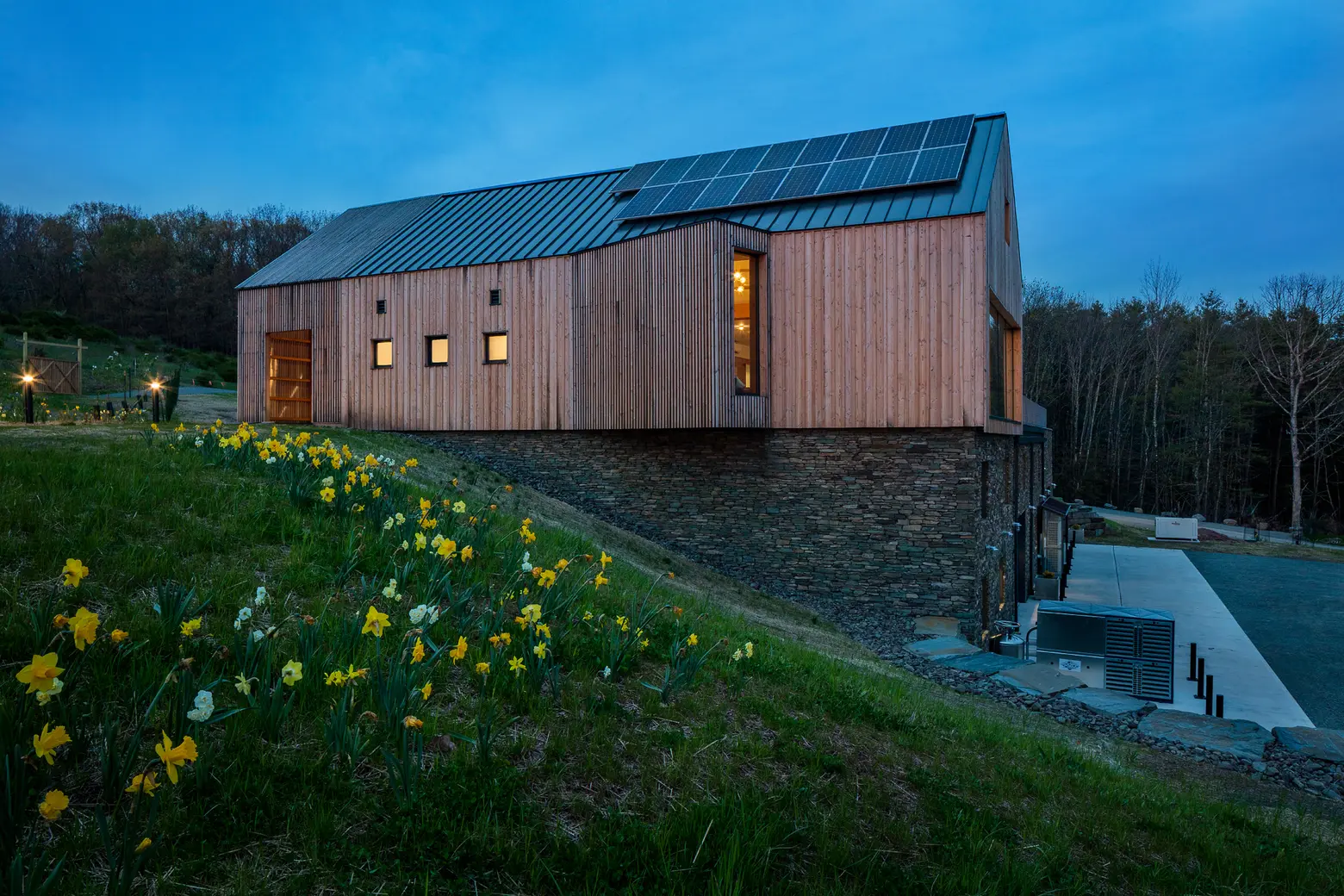
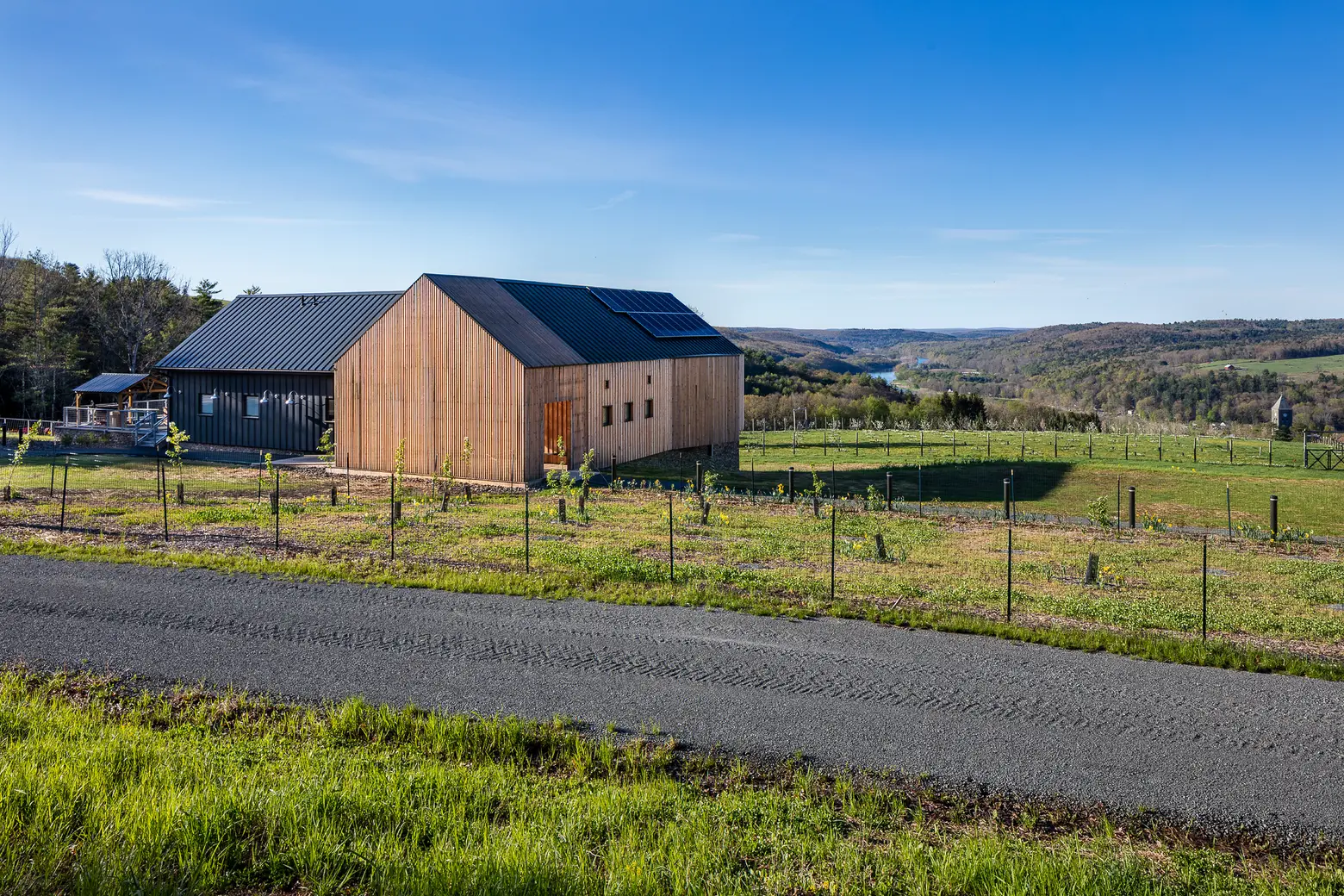
Certified by the Passive House Institute U.S., the building’s insulated thermal envelope prevents heat loss or gain, while its triple pane windows help warm the room during winter, while also providing peaceful orchard views. According to the architects, the photovoltaic solar panels produce most of the electricity and solar thermal collectors power the portable water heaters used to sterilize equipment.
The eco-consciousness doesn’t stop at the cidery’s design but continues throughout stages of cider production. The water used to wash fruit and equipment comes from a greywater management system on-site, lighting and signage are dark-sky compliant, and the production space is built into the hillside as a way to naturally maintain cold temperatures needed for storage and fermentation.
“At Seminary Hill, the value of sustainability informs all aspects of our operation, from the design of the Cidery to the holistic methods employed in our orchard,” Susan Manning, co-founder of Seminary Hill, said. “While our cidery represents a new chapter in Callicoon, growing apples and making cider has been an important part of the local economy since the mid-nineteenth century.”
Located about three hours from New York City in Sullivan County, Seminary Hill sits on 62 acres of land. In addition to the tasting room, the facility includes the apple orchard, guest house, and wedding venue.
RELATED:
- A former brickyard in Kingston is now luxury hotel cabins on the Hudson River
- The Glowing Hudson Passive Project Is a Dreamy Upstate Eco-Retreat
All photos courtesy of Brad Dickson / River Architects, PLLC
